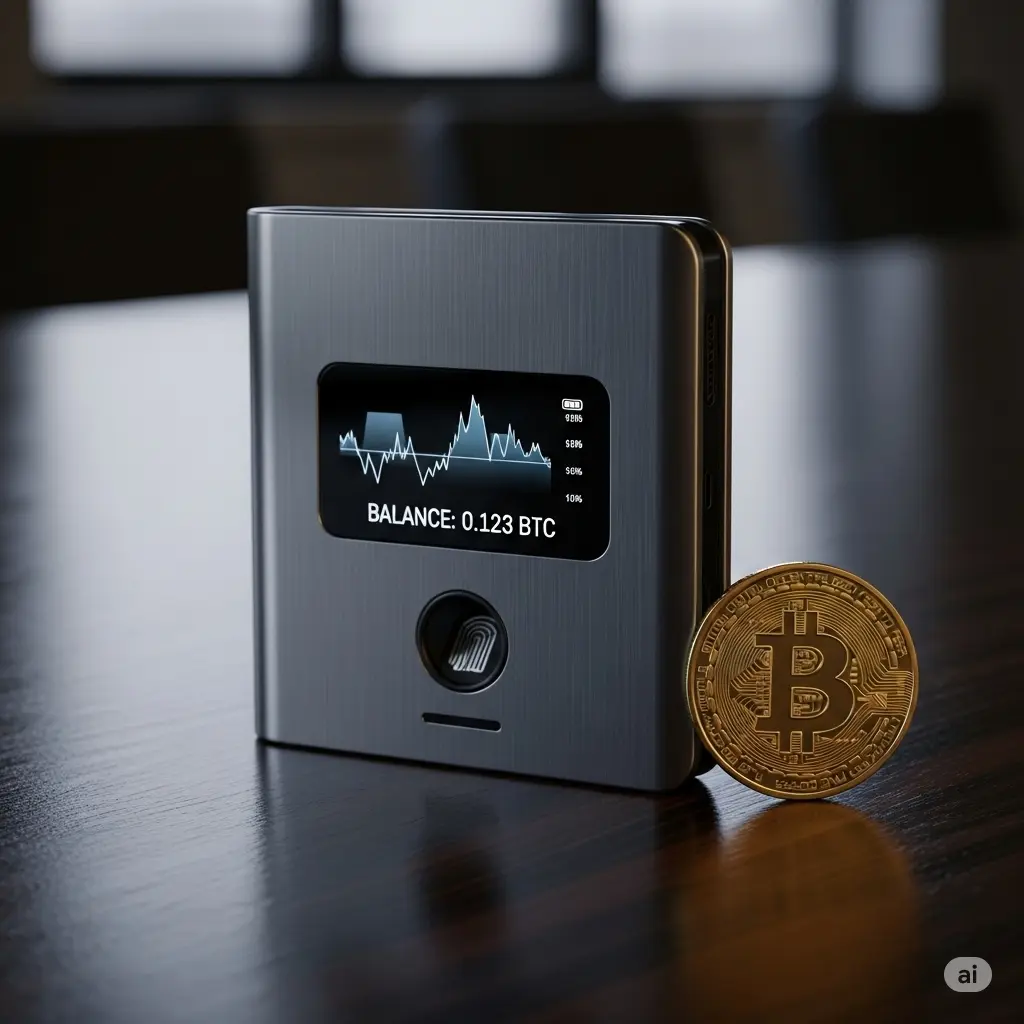Keep Your Assets Safe with a Secure Crypto Wallet
In the whirlwind of Secure Crypto Wallet, safeguarding your digital assets has become more crucial than ever. Whether you’re a die‑hard DeFi enthusiast, a newcomer exploring Web3, or following blockchain action on Global Crypto Sports.
In 2025, crypto adoption continues to surge. New asset classes like NFTs, play‑to‑earn games, tokenized sports memorabilia, and decentralized betting platforms are drawing massive volumes. With more value moving on‑chain, threats from phishing scams, hacks, and human error have multiplied. That’s why your choice of wallet isn’t trivial—it’s the foundation of your crypto security.
Let’s dive in and make sure Global Crypto Sports readers stay safe, informed, and invested wisely!

1. Understanding the Landscape: Key Crypto Terms Made Simple
Before we walk through wallet types and safety strategies, let’s define some core terms—no jargon, clear explanations:
| Term | What It Means |
|---|---|
| Blockchain | A shared, tamper‑proof ledger that records transactions across many computers. It ensures trust without needing a middleman. |
| DeFi (Decentralized Finance) | The vision of the internet is built on decentralized tech like blockchain, giving users control over their data and money. |
| Web3 | The vision of the internet built on decentralized tech like blockchain, giving users control over their data and money. |
| Crypto Wallet | A tool that lets you store and manage your crypto. It holds your keys, not your coins—think of it as your digital vault. |
These fundamentals are vital because a Secure Crypto Wallet is how you interact with blockchain, DeFi, Web3—and ultimately, how you keep your sports tokens, NFT cards, or betting credits safe.
2. Types of Crypto Wallets: Hot vs Cold, Hardware vs Mobile
2.1 Hot Wallets
- Definition: Wallets connected to the internet—accessible via your desktop, browser, or mobile device.
- Examples: MetaMask (browser extension), Trust Wallet (mobile), Coinbase Wallet (app).
- Pros:
- Convenient and user‑friendly
- Great for frequent trading, DeFi staking, and Web3 gaming
- Cons:
- Always online—higher exposure to phishing, malware, and hacks
- Less secure for storing large amounts long term
2.2 Cold Wallets
- Definition: Wallets not connected to the internet—like hardware or paper versions.
- Examples: Ledger, Trezor, self‑made paper wallets.
- Pros:
- Strong security—offline, immune to remote hacks
- Ideal for long‑term storage or “hodling”
- Cons:
- Less convenient—need physical access
- Risk of physical loss or damage
- Setup may feel intimidating to beginners
2.3 Hardware Wallet
One of the most trusted forms of cold wallet; a small device that securely stores your private keys offline.
- Advantages:
- Built‑in security chips
- PIN protected
- Verifies transactions on the device screen
- Drawbacks:
- Costs money (though many see it as an investment in crypto wallet security)
- Must be purchased from a verified vendor to avoid tampering
2.4 Mobile Wallets
A subset of hot wallets, accessible via your smartphone.
- Advantages:
- On‑the‑go access to Web3 apps, trades, and transfers
- Increasingly user‑friendly
- Drawbacks:
- Risk from mobile malware, phone theft
- Security depends on your device’s hygiene and OS updates
2.5 Decentralized Wallets
- Definition: Wallets that give you full control of your private keys—no third‑party holds them.
- Context: All self‑custody wallets (hardware, hot, mobile) can be considered decentralized if you control your seed phrase.
- Key benefit: Full control and censorship resistance.
- Risk: You alone bear the responsibility for backups and recovery—no customer support.
3. Why Secure Crypto Wallet is Your Top Priority
3.1 Risks Without Protection
- Hackers and phishing: Fake websites, emails, and pop‑ups are everywhere.
- Human error: Typing wrong addresses, losing the seed phrase, or falling victim to scams.
- Software exploits: Vulnerabilities in wallets, interfaces, or browser extensions.
3.2 Benefits of a Secure Approach
- Peace of mind: Knowing your seed phrase is safely stored protects you against hacks.
- Asset protection: Use of hardware or cold wallets keeps your tokens insulated from online threats.
- Scalability: As you transition into sports tokens, GameFi, and increased DeFi activity, a secure wallet ensures your ability to transact safely and confidently via Global Crypto Sports channels.
4. Real‑World Example: The Sports Token Hack
Imagine this: A trader stores a rare sports-related NFT token tied to a soccer star on a browser‑based hot wallet. They click on a malicious link—prompted to connect their wallet to a fake gaming site—and suddenly their token is gone. No backup, no recourse.
Now, consider the same scenario with a hardware wallet: The malicious site tries to initiate a transaction; the user must physically confirm it on the device’s screen and sees a strange recipient address immediately. They cancel. Their asset is still safe.
This simple comparison highlights how the best crypto wallet 2025 is not just about functionality—it’s about foreseeing modern threats and choosing tools that minimize risk.

5. Choosing the Best Crypto Wallet 2025: Step‑by‑Step Guide
- Identify Your Use Cases
- Frequent trading / DeFi / Web3: You’ll need hot/mobile wallets.
- Long‑term holdings, high‑value assets: Cold/hardware wallets are key.
- Consider Security vs Convenience
- Hot wallets = convenience, but you must be diligent.
- Cold wallets = security, but you need discipline (and a safe backup!).
- Choose a Wallet Brand Wisely
- For hardware: Ledger, Trezor, BitBox.
- For hot wallets: MetaMask, Trust Wallet, Coinbase Wallet.
- Check reviews, official site legitimacy, and known vulnerabilities.
- Set Up Your Wallet
- Download from official channels.
- Use a strong GP‑encrypted password (for hot wallets).
- Generate and safely store the seed phrase offline.
- Enable two‑factor authentication (2FA) where possible.
- Create Multiple Wallet Backups
- Write the seed phrase on paper, store it in a waterproof, fireproof safe.
- Consider splitting across multiple physical locations.
- Resist digital backup (screenshots, cloud) unless encrypted and offline.
- Implement Crypto Wallet Security Hygiene
- Keep software up to date.
- Never share your seed phrase or private keys; no wallet extension or person should ever ask for them.
- Use hardware wallets for signing high‑value transactions.
- Verify transaction details on device screens.
- Test with a Small Amount First
- Send a small test transaction to get comfortable.
- Confirm receipt, then proceed to larger transfers.
- Regularly Update Your Knowledge
- Follow Global Crypto Sports for news on DeFi exploits, firmware patches, and wallet vulnerabilities—stay ahead.
6. Pros & Cons Overview
| Wallet Type | Pros | Cons |
|---|---|---|
| Hot Wallet | Easy access, fast transactions, lightweight | Online exposure; high phishing risk |
| Mobile Wallet | Portability, Web3 app integration | Vulnerable to phone malware or loss |
| Cold (Hardware) | Strong security, offline, phishing-resistant | Cost, setup complexity, risk of physical loss |
| Paper Wallet | Ultra‑cheap, offline | No recovery if paper destroyed, less flexible |
| Decentralized | Full control, censorship resistance | Full responsibility—no customer support, requires discipline |
7. Actionable Advice for Beginners & Intermediate Investors
For Beginners
- Start with a trusted hot/mobile wallet like MetaMask or Trust Wallet.
- Secure your seed phrase: write it by hand, never in digital form.
- Only ever connect to DeFi or gaming sites you know.
- Watch for phishing: always check URLs and confirm on-chain events via trusted channels like Global Crypto Sports’ guides.
- Use small test transactions first.
For Intermediate Investors
- Invest in a reputable hardware wallet (e.g., Ledger, Trezor).
- Implement multi‑location backups for your wallet backup.
- Use multi‑signature or shared control setups if handling significant value.
- Periodically verify your seed phrase; ensure it restores correctly.
- Stay plugged into blockchain news—be aware of hot wallet exploits, firmware updates, and evolving threats.
8. Frequently Asked Questions (FAQ)
Q1: What is the most secure crypto wallet?
The most secure is typically a reputable hardware wallet—like Ledger or Trezor—used offline with a safely stored seed phrase. Combined with disciplined backup, it offers top crypto wallet security.
Q2: Can a hot wallet ever be safe?
Yes—hot wallets can be used safely if you follow strict hygiene: download only from official sources, keep software updated, store the seed phrase offline, and use with caution in trusted Web3 environments.
Q3: How should I store my seed phrase safely?
Write it on durable material (paper, metal plate) and store it in at least two physically separate, secure locations (e.g. home safe, bank deposit box). Avoid digital copies unless encrypted offline.
Q4: What’s the difference between a cold wallet and a decentralized wallet?
A cold wallet refers to hardware or paper wallets kept offline. A decentralized wallet means you control the private keys—both hot and cold self‑custody wallets qualify.
Q5: Should I choose a mobile wallet or a hardware wallet for sports‑related NFTs?
For frequent trading or interaction with sports-based apps, a mobile wallet gives convenience. But for valuable NFTs, store them in a hardware wallet and transfer only what you need for active use.
Q6: What makes the “best crypto wallet 2025”?
Security, user experience, firmware support, cross-chain compatibility, and backing from transparent developers. Also, ease of backup and recovery, especially important in 2025’s varied DeFi and GameFi landscape.
Q7: Can I use one wallet for both DeFi and long‑term storage?
Technically, yes—but it’s best practice to split: use hot wallets for daily use and a cold/hardware wallet for long‑term holdings and high‑value assets.
9. Strong Conclusion with a Call‑to‑Action
In today’s fast‑moving crypto world, especially on platforms like Global Crypto Sports, staying ahead of threats has never been more critical. A secure crypto wallet isn’t optional—it’s essential. Whether you’re staking in DeFi, flipping sports tokens, or building a Web3 portfolio, choosing the right wallet—and mastering crypto wallet security—is your safeguard.
- Beginners, get started with a reputable hot or mobile wallet—just make that wallet secure.
- Intermediate investors, elevate your security with a hardware wallet and robust backup systems.
- All readers, stay informed—watch for news on exploits, firmware patches, and the evolving crypto ecosystem.
Take wise actions today:
- If you don’t already, set up a hardware wallet and backup your seed phrase.
- Secure your hot wallets and remove unused browser extensions.
- Follow Global Crypto Sports for updates on crypto security trends and tools.
- Share this post with fellow crypto fans—empower your community with knowledge.
Final Thought
Your crypto is only as safe as your wallet strategy. Don’t wait for a hack or loss to realize the risk. Equip yourself now—with knowledge, the right tools, and strong backup practices—and enjoy your crypto journey with peace of mind.
Stay secure. Invest wisely. And follow Global Crypto Sports for the latest in crypto security and sports‑token trends.
